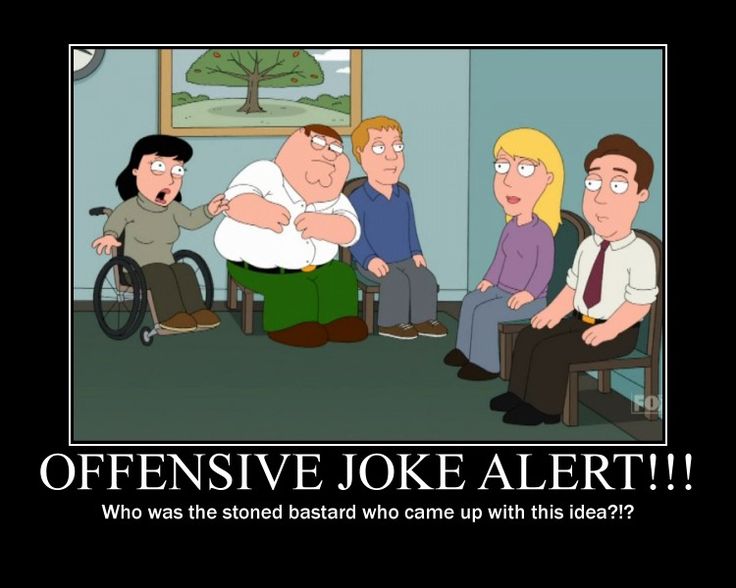

Named after the German word for “landfill,” Deponia was a series of four games taking place primarily on the titular planet Deponia, a world where people live in a natural environment made entirely of trash. It was in 2012 that, with the help of studio founder Jan Müller-Michaelis, the studio finally had their signature franchise: Deponia. Sure, Edna & Harvey got them some attention, but they hadn’t yet found that special series that would really put them on the map. They could be the difference between a joke being met with rollicking laughter or awkward silence.For a long time, the German studio Daedalic Entertainment didn’t really have a signature title it could hang its hat on.
#Deponia offensive joke professional#
Nonetheless, our findings show that comedians and humorists, professional or otherwise, should be ever mindful of group dynamics. We plan to test these potential processes across a new set of studies. Maybe he truly does harbor disdain.Īlternatively, it may simply be the case that people are given greater “ license” to make disparaging jokes about groups they’re a part of, irrespective of their motives. He doesn’t identify with his targets in any way. On the other hand, when Shane Gillis does the same, audiences may be less likely to give him the benefit of the doubt – and more likely to infer malign and racist intentions. But no matter the real reason, he certainly wouldn’t want to inflict harm on his own group – or so the thinking goes. Maybe he’s satirizing the racist ways in which others portray Chinese people, or perhaps he’s affectionately parodying his own culture. When humor is deployed in a self-referential way, perhaps the audience is more prone to perceive it through a prosocial lens.įor example, when Bowen Yang speaks with an exaggerated Chinese accent, audiences may more readily construe this as coming from a benign place.

Some humor researchers distinguish between what they call “antisocial intentions” – in which humor is used to inflict harm and reinforce stereotypes about a social group – and “prosocial intentions” – where humor is used to empower the group and challenge stereotypes about it. So why, exactly, does the group membership of the joke teller matter so much? We think it may have something to do with how an audience interprets the joke’s intent. We found that participants, on a consistent basis, were more receptive to humor based on gender, race and sexual orientation if the person making the joke was also a member of the targeted group. We then ran a third study in which we directly asked participants how acceptable it was for members of different social groups to make jokes about their in-group or various out-groups. Here, participants rated the joke as funnier, less offensive and more acceptable when the owner of the Facebook profile was Asian. So, in a second study, we showed participants a mock Facebook profile belonging to an Asian, black or white man who had posted a joke about Asian people. We wanted to know whether this effect also applied to jokes about race. Participants considered the joke funnier, less offensive and more acceptable if the poster was gay. We then asked the participants to rate how funny, offensive and acceptable they found the joke. In our first study, we showed participants a mock Facebook profile belonging to either a gay or a straight man who had posted a joke about gay people. To test this, we ran a series of studies in which we examined whether people’s reactions to disparaging jokes would change based on who was telling the joke. This phenomenon is called the intergroup sensitivity effect, and we wondered whether it applied to humor. Many of us intuitively understand that it’s more permissible for people to openly judge or criticize social groups they belong to than those they do not belong to.įor example, many Americans may feel justified in calling out the country’s faults while lambasting a non-American for doing the same. Yang, it seems, can “get away” with this sort of humor precisely because he is both Asian and gay, while Gillis is neither. We study why some jokes land and others don’t – and why the identity of the person telling the joke matters.


 0 kommentar(er)
0 kommentar(er)
